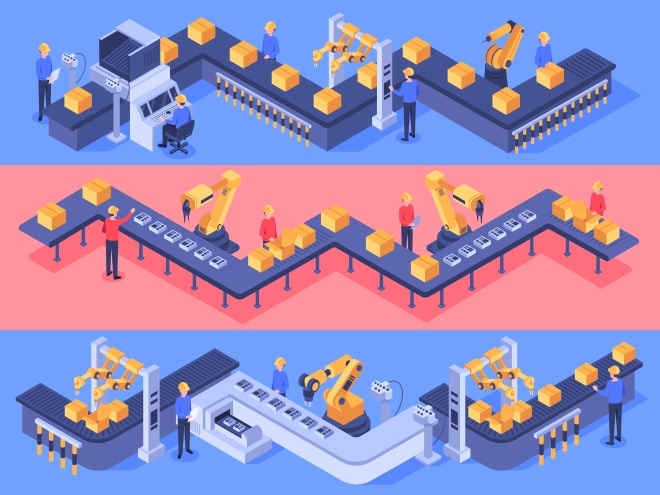 It’s the new year, and your business is off to a good start. Sales are brisk, and productivity is high. You’ve got great people with you, and you think you can now step back and relax. But should you? Complacency can be dangerous, and if you don’t stay up with the latest business tech trends, you may lose out to your competitors.
It’s the new year, and your business is off to a good start. Sales are brisk, and productivity is high. You’ve got great people with you, and you think you can now step back and relax. But should you? Complacency can be dangerous, and if you don’t stay up with the latest business tech trends, you may lose out to your competitors.
Since customer demands are constantly shifting and evolving, you need to keep pace with the newest tech to know where your business stands. It also helps that these technologies are there to make life easier for you by helping you run everything from mundane, everyday tasks to comprehensive IT solutions.
So, what are the business tech trends for the year 2020? There are plenty. From marketing and financials to collaboration and communication, the list of technologies to watch for is long. Let’s explore some of these below.
1. 5G Networks
All major providers in the United States now offer a form of 5G (there are low, mid, and high-bands available). At the moment, the most widely available versions don’t seem too different from the 4G that most of us use, but industry experts expect it to be a good investment for the next decade and a game-changer in the coming years.
5G stands for fifth-generation cellular wireless, and it’s predicted to offer even faster data speed, allow connection to a lot more devices at once, and be more responsive than 4G. It can run on any frequency and theoretically can top speeds of 10 Gbps/s — 100 times more than what 4G currently offers.
What does this mean for you?
This new cellular technology has a wide variety of applications. If, for example, you are in the supply chain and logistics industry, this equates to having increased visibility throughout the supply chain. Everything in your chain, from your equipment and product to your shipping trucks, can send you data-rich, real-time signals that can help you figure out where, when, and how much of your product is needed. It can also assist you in working out what truck to send out, its capacity, and its current location, so that you can respond in a faster manner.
For the banking industry, meanwhile, this could translate to faster fraud detection (because data can be analyzed immediately), a shift to cloud for mobile banking, AI-based customized banking services, and more.
2. Artificial Intelligence
AI, a system’s ability to perform tasks that are usually associated with human intelligence, has been in the top business tech trends for some years. Even non-tech businesses have been implementing some form of AI applications into their products or systems to improve sales, boost productivity, personalize user experiences, manage inventory, and drive digital transformation.
One example of how AI can benefit businesses can be found in the healthcare industry. According to an analysis by Accenture, “clinical health AI applications can potentially create $150 billion in annual savings for the U.S. healthcare economy by 2026.” This is because AI can not only help with managing electronic health records and other admin duties, it can also support doctors in making much more efficient disease diagnoses and treatment plans.
3. Customer Relationship Management Software
Customer Relationship Management Softwares (CRMs) are useful tools in managing all company relationships with customers and potential ones. These can help businesses keep track of all customer interactions, particularly if such a business generates a vast amount of data daily.
CRMs take those data and convert them into insightful and intuitive information that can help drive growth. Basically, with a CRM, every detail about a customer or potential lead is recorded. If the system is cloud-based, all of this information is instantly accessible from any connected device. It allows companies to get a clearer picture of their market to win new clients and keep their old ones loyal.
Typically, CRMS include sales forecasting, contact and lead management, file sharing, and dashboard analytics features. You can also personalize these to schedule sales follow-ups, add notes, and automate marketing.
 4. Automation
4. Automation
Although sometimes confused with AI, automation is inherently different. Just like with AI, automation allows tasks that were previously performed by humans to be carried out by machines, but that is where the similarity between the two ends. While AI mimics humans in the way we think and carry out decisions, automation is focused more on making repetitive tasks more efficient.
While the idea of automation isn’t exactly new, recently developed tools make the integration of existing software seamless so that even non-tech businesses without a full IT team can apply it.
Automation has been adopted across many industries, most notably in the manufacturing sector, for boosting productivity and cutting costs. In recent years, however, automation has not been confined to the machine layer. It is now also an essential software tool for processes such as data management, email and social media marketing, accounting, and customer service.
5. Managed IT Services
As businesses depend more and more on technology, the pitfalls increase. The company data might not be adequately protected; the hardware devices might not be compatible with each other; there might not be a good disaster recovery plan in place, and so on.
It used to be that only companies who could afford a full IT team were able to enjoy its benefits. In recent years, however, companies like Varay have enabled smaller businesses to have all the advantages of an entire IT department without the equivalent cost.
Since all the functions and processes of an IT team are outsourced, businesses can enjoy top- of-the-line protection and IT solutions while being able to focus more on their growth.
Get up to date on the latest business tech trends.
Contact us to see if you’re on top of your IT game. We’ll provide{{cta(‘95015ac3-39f3-4fb9-a8bb-6f98ea1d0d95’)}} for your business to give you that necessary edge


 4. Automation
4. Automation